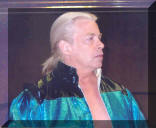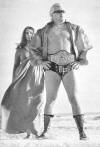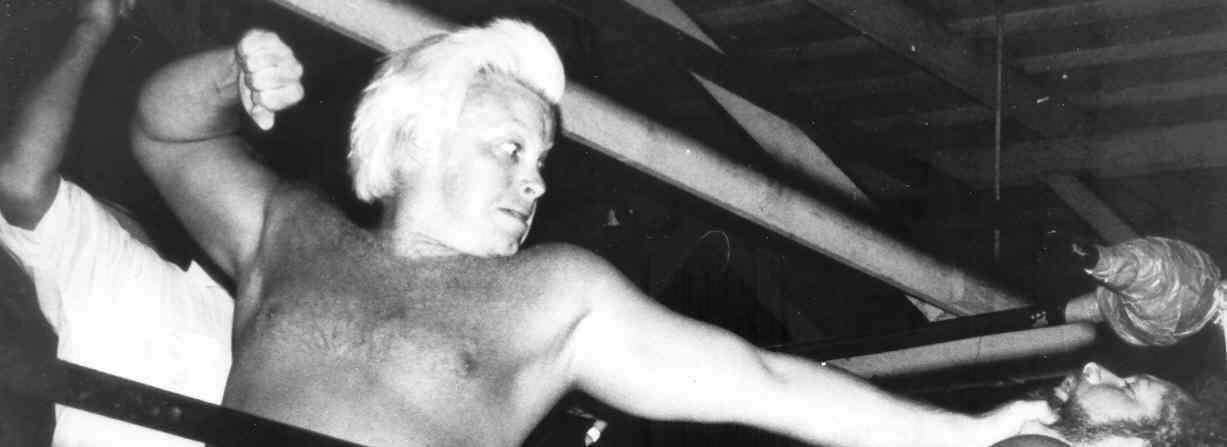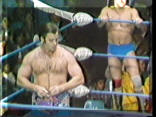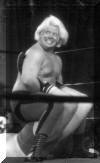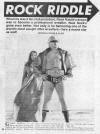Obstacles, hardships, and challenges prevent the vast majority of people from moving forward. Every once in a while, however, there is a person who will absolutely not be stopped – a person who uses adversity as a catalyst to propel himself onward and upward in order to achieve the “impossible.” Many highly successful people give credit for their success to the “overwhelming” challenges they faced earlier in life. They are actually thankful for the obstacles. I know I am. Had I grown up in a big city with financially secure parents, this column would not exist. I would have never entered the wonderful world of professional wrestling. I would never have embraced the extraordinary need to excel. I was extremely lucky. I grew up in the small town of Burlington, North Carolina. I endured the constant onslaught of small-town thinking. Virtually everybody living there was born there. Their parents and grandparents were born there. Their great-grandparents were born there, spent their entire lives there, and were buried there. I remember hearing the same words over and over, “Ah don’t know why anybody ‘ud ever wonna leave. You got ever-thang ya wont rite here in the county.” “Sure,” I thought, “as long as you want to grow tobacco or make socks at Burlington Industries.” For me, it was stifling. I didn’t belong there, and I wanted out for as long as I could remember. When I was sixteen years old, I decided to become a professional wrestler – a “bad guy” professional wrestler. It was the ultimate way of rebelling and acting out the utter frustration I had felt most of my life. I would not conform. I would not “fit in.” I would not give up the rest of my life and “settle.” No, I would not be like “them.” I would show them by becoming exactly what they did not want me to be – successful and famous … Well, more accurately, I decided to become “infamous.” And, I succeeded at becoming so very, very well. Even now, after these many years, I have an overwhelming sense of price when I think of how well I “showed them.” It was easy for me to build my bad-guy “Mr. Wonderful” wrestling character. The character would be the embodiment of my feelings towards the small-town thinking (and the small town thinkers) taken to the extreme. I had been a major wrestling fan for two years. I knew what I liked. I would bleach my hair and eyebrows blond like my heroes, the villainous Rip Hawk and Swede Hanson. I would design some of my wrestling outfits based on a particular style of tights and trunks that they sometimes wore. But, that would just be the starting point. I would add wrap-around sunglasses, custom-designed velvet robes (with, of course, “Mr. Wonderful” blazoned across the back), shimmer-cloth ring jackets, and uniquely-designed wrestling boots. The colors and patterns would be wild, extreme, and irritating. My attitude would be arrogant, cocky, and totally condescending. I would take the best from the best and then add my own unique style. Lastly, I would become a proficient wrestler. As extreme as I would become in the ring and on the microphone, I always knew that I would be able to fall back on this truth: “It’s not bragging if you can do it.” I understood the psychology of professional wrestling very well. I knew what the “ultimate professional wrestler” should be – it would be me. I thought wrestlers should stay in the dressing room until it was time for them to come to the ring. “The first time the fans should see a wrestler is when he is entering the ring,” I told my friends – those who would listen, “And, the last time they should see him is when he is heading back to the dressing room. There needs to be that element of mystique.” That was my philosophy, and that’s how I approached my arena matches. Many of the wrestlers would talk to the “attractive young women” who tended to hang around outside of the dressing room doors. In the music business, these “ladies” would be called “groupies.” I never could understand why women would offer themselves to skinny drugged-out musicians. The only reason I could come up with was “extreme lack of self esteem.” It was much easier to understand why women would go after professional wrestlers. Pro wrestlers were physically superior specimens of masculinity. They represented – even oozed – superior health and wealth, fame, strength, self-reliance, self-confidence, sexuality, sensuality, and a worldliness that very few others would ever attain. And, even though we, the wrestlers, had a higher opinion of the “wrestling groupies,” we still didn’t give them a great deal of respect. Throughout the entire world of professional wrestling, they were referred to as “arena rats.” Many wrestlers would accept their offers, but few took them seriously. I knew what to expect upon my first arrival at Los Angeles’ Olympic Auditorium. It would be the same as every other major arena. I would arrive early, and I would be approached by “them” on my way to the dressing room. “Hi, Rock,” sang one of the ladies, “I’m Angela, and this is Janie, and we think you’re really cute.” I smiled on the inside. This was my opportunity to begin my Los Angeles reign in the perfect way. I looked down my nose, made a face as though something smelled really bad, made my “Pufffffittt” comment of disgust, turned my head away and totally ignored them for the rest of my journey to the dressing room. I could still hear the screaming and cursing long after I shut the dressing room door behind me. I had a gigantic grin on my face. Arena rats usually sat “front row ringside.” Now, these two sincerely hated my guts, and they would lead the throngs of “boo’s” every time I came to the ring. Once again, it was a good night and a great beginning for my Los Angeles run. Keep those emails coming. Beginning next week, I’ll answer many of your questions, such as: “What was your most embarrassing moment? …Who were the toughest people you wrestled? … Who were the most dangerous? … What injuries did you receive in the ring? … Who do you consider the best” .. and lots more. |
|||||||||||||
|
This column welcomes your wrestling-related
questions. You may contact the author via email: RockRiddle@hotmail.com
or
Rock@HollywoodSuccess.com.
Be sure to put "Wrestling Question" in the subject line.
© 2006 Rock Riddle & Hollywood Success. |
|||||||||||||
| Previous Column | Wrestling Revue Home Page | Next Column | |||||||||||
